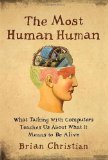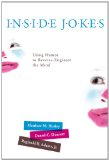This is a list of books on consciousness published or forthcoming in 2011, based on a search at WorldCat, with links to Amazon [& publication month in square brackets]:
Altering Consciousness: Multidisciplinary Perspectives, 2 vols. ed. by Etzel Cardeña; Michael Winkelman (Santa Barbara, Calif.: Praeger, 2011-) [May] (amazon.co.uk – May)
Chimeras and Consciousness: Evolution of the Sensory Self ed. by Lynn Margulis; Celeste A Asikainen; Wolfgang E Krumbein (Cambridge, Mass.: MIT Press, 2011) [Apr] (amazon.co.uk – Mar)
Consciousness: An Introduction, 2nd ed. by Susan J Blackmore (New York: Oxford University Press, 2011) [Feb] (amazon.co.uk – Apr)
Consciousness and the Prospects of Physicalism (Philosophy of Mind) by Derk Pereboom (New York: Oxford University Press, 2011) [Mar] (amazon.co.uk – May)
Embodiment, Emotion, and Cognition by Michelle Maiese (Basingstoke, Hampshire; New York, NY: Palgrave Macmillan, 2011) [Feb] (amazon.co.uk – Dec 2010)
The Emergence of Mind: Representations of Consciousness in Narrative Discourse in English (Frontiers of Narrative) ed. by David Herman (Lincoln: University of Nebraska Press, 2011) [listed as May, but already available in March 2011] (amazon.co.uk – May)
Experimental Phenomena of Consciousness: A Brief Dictionary, Revised Edition by Talis Bachmann; Bruno G Breitmeyer; Haluk Ögmen (New York: Oxford University Press, 2011) [Apr]
Investigating Pristine Inner Experience: Moments of Truth by Russell T Hurlburt (Cambridge ; New York: Cambridge University Press, 2011) [Jul] (amazon.co.uk -Jul)
Living Consciousness: The Metaphysical Vision of Henri Bergson by G William Barnard (Albany: State University of New York Press, 2011) [Dec] (no Amazon link yet – publisher info)
The Living Mind: From Psyche to Consciousness by Richard Dien Winfield (Lanham, Md.: Rowman & Littlefield Publishers, 2011) [Jul] “explores the biological foundations of psychology from a broadly Hegelian perspective”
The Mind: Leading Scientists Explore the Brain, Memory, Consciousness, and Personality by John Brockman (New York: Harper Perennial, 2011) [Aug] (amazon.co.uk – Aug)
Perplexities of Consciousness (Life and Mind: Philosophical Issues in Biology and Psychology) by Eric Schwitzgebel (Cambridge, Mass.: MIT Press, 2011) [Feb] (amazon.co.uk – Feb)
Phenomenal Consciousness: Understanding the Relation Between Experience and Neural Processes in the Brain by Dimitris Platchias (Montreal; Ithaca, NY: McGill-Queen’s University Press, 2011) [Mar] (amazon.co.uk – Oct 2010)
Philosophy, Neuroscience, and Consciousness by Rex Welshon (Montreal: McGill-Queen’s University Press, 2011) [Feb] (amazon.co.uk – Nov 2010)
Predictions in the Brain: Using Our Past to Generate a Future ed. by Moshe Bar (New York: Oxford University Press, 2011) [May] (amazon.co.uk – May)
Soul Dust: The Magic of Consciousness by Nicholas Humphrey (Princeton, N.J.: Princeton University Press, 2011) [Feb] (kindle ed.), (amazon.co.uk – Jan)
Wednesday’s Child: From Heidegger to Affective Neuroscience, a Field Theory of Angst by Gregory Schulz (Eugene, Or.: Wipf & Stock, 2011) [Jan] (amazon.co.uk – Jan)
Who Was Mrs Willett?: Landscapes and Dynamics of Mind by Chris Nunn (Exeter: Imprint Academic, 2011) [Jan] (amazon.co.uk – Jan)
Why Red Doesn’t Sound Like a Bell: Understanding the feel of consciousness by J K O’Regan (New York: Oxford University Press, 2011) [Jun] (amazon.co.uk – Jun)
Willful Blindness: Why We Ignore the Obvious at Our Peril by Margaret Heffernan (New York: Walker, 2011) [Mar] (kindle ed.), (amazon.co.uk – Feb)
*****
These MIT Press titles listed on WorldCat could not be found at Amazon or on the publisher’s website, but may turn up later:
–Meditating selflessly: practical neural Zen by James H Austin (Cambridge, Mass.: MIT Press, 2011)
–Re-emergence: locating conscious properties in a material world by Gerald Vision (Cambridge, Mass.: MIT Press, 2011)
–The wonder of consciousness: understanding the mind through philosophical reflection by Harold L Langsam (Cambridge, Mass.: MIT Press, 2011)
See also: Consciousness books 2007-2010






